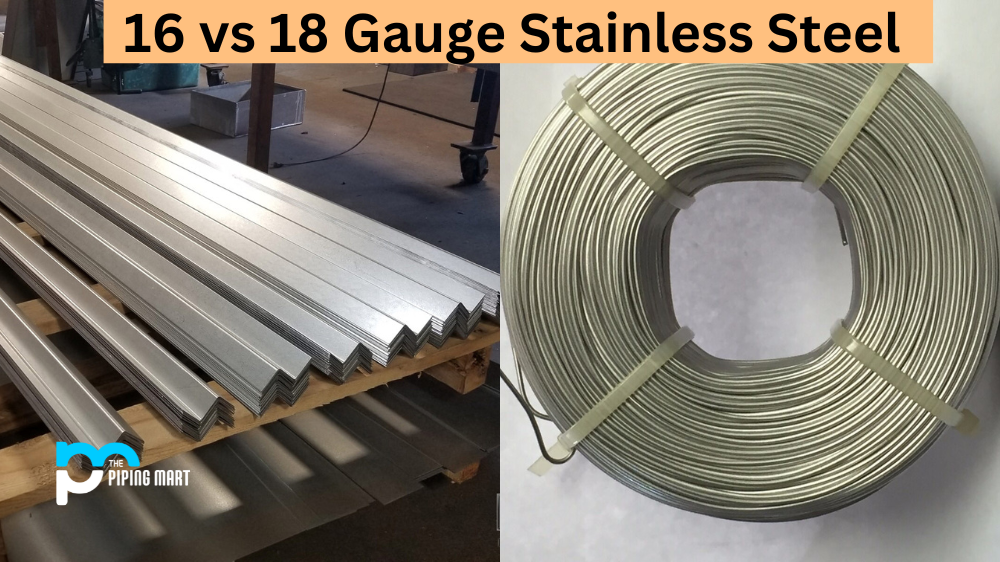When it comes to stainless steel, one of the most common questions asked is what is the Difference between 16 and 18-gauge steel. To answer this question, let’s take a closer look at the two gauges and how they measure up.
Understanding Gauges
Gauging stainless steel is a process by which the thickness of a sheet of metal is measured. This measurement is expressed in terms of thousandths of an inch (i.e., 1/1000). The higher the gauge number, the thinner the metal. Consequently, 16-gauge stainless steel has a greater thickness than 18-gauge stainless steel.
Durability and Strength
When it comes to durability and strength, 16-gauge stainless steel is generally considered superior to 18-gauge stainless steel because it offers greater resistance to corrosion and other forms of wear and tear. That being said, 18-gauge stainless steel can still be quite durable, depending on where it’s being used. For example, if you are using 18-gauge stainless steel in an area that will not be subjected to heavy use or exposure to corrosive materials, then it may be strong enough for your needs. On the other hand, if you are using it in an area that will experience more wear and tear or corrosion over time, then 16-gauge stainless steel would likely be your best bet since it will offer superior durability and strength in those situations.
Cost Differences
The cost difference between 16-gauge and 18-gauge stainless steel can vary significantly depending on where you shop for it as well as its availability at any given time. Generally speaking, though, 16-gauge stainless steel will cost more than 18-gauge due to its greater strength and durability. However, this price difference can be offset by shopping around for deals or finding sources for bulk buying discounts which may make both gauges cost about the same (or even make 18-gauge cheaper).
Conclusion:
Choosing between 16 vs 18-gauge stainless steel requires careful consideration with respect to cost differences & durability & strength requirements as well as availability at any given time. Ultimately though, you should choose what meets your needs best without compromising on quality or safety standards in order to save money! By taking all these factors into account when making this important decision, you can ensure that you get the most out of your investment while still getting something that meets all your expectations!

Abhishek is a seasoned blogger and industry expert, sharing his insights and knowledge on various topics. With his research, Abhishek offers valuable insights and tips for professionals and enthusiasts. Follow him for expert advice on the latest trends and developments in the metal industry.




